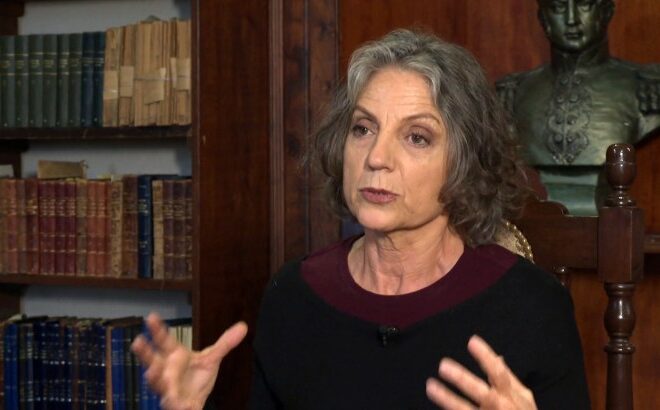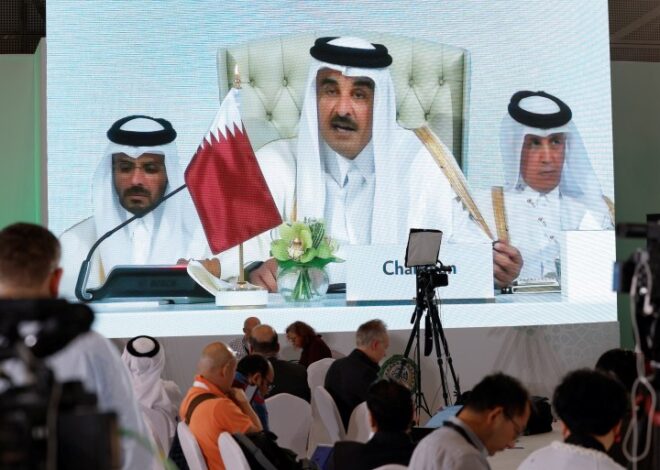In first interview, Pope Leo XIV takes on billionaires, polarization and war

Pope Leo XIV’s Vision: Addressing Inequality, Polarization, and the Quest for Peace
In a significant first interview following his election, Pope Leo XIV has expressed his deep concerns regarding income inequality, societal polarization, and the urgent need for peace. Conducted over two sessions and published by the Catholic news site Crux on his 70th birthday, this interview provides valuable insights into the new pope’s priorities and personality.
A Call for Unity Amid Division
During the interview, Pope Leo XIV emphasized the importance of recognizing humanity’s potential to overcome violence and hatred, which he believes are increasingly dividing society. “We have to continue to remind ourselves of the potential that humanity has to overcome the violence and the hatred that is just dividing us more and more,” he stated. He pointed out that the term “polarization” has become prevalent in contemporary discourse, yet it serves to benefit only a select few while causing widespread suffering.
By highlighting the COVID-19 pandemic as a contributing factor to societal division, the pope also noted a troubling loss of respect for human life. He articulated that the growing gap between the incomes of the working class and the wealthiest individuals is a significant driver of this polarization.
Inspiration from Pope Leo XIII
Upon his election on May 8, Pope Leo XIV chose his papal name in honor of Pope Leo XIII, who addressed the societal challenges posed by the Industrial Revolution in the late 19th century. Leo XIII’s encyclical, “Rerum Novarum” (On Revolutions), advocated for the rights of the working class, fair wages, and the right to unionize, while opposing both communism and unchecked capitalism.
In this context, Pope Leo XIV raised questions about the vast income disparities between modern CEOs and their employees. He specifically challenged the extreme wealth of billionaires, including figures like Elon Musk, underscoring the troubling implications of valuing wealth above all else. “What does that mean and what’s that about? If that is the only thing that has value anymore, then we’re in big trouble,” he remarked.
Synodality as an Antidote
The new pope is positioning himself as a leader of reconciliation, advocating for “synodality” as a means to address the deep divisions within both the Church and society. Rooted in the Latin American Church, synodality promotes an attitude of openness and a willingness to engage in dialogue. Pope Leo XIV believes that this approach can significantly contribute to overcoming contemporary challenges.
He observed that some church leaders may feel threatened by synodality due to a misunderstanding of their authority. He emphasized that a synodal Church allows every member—be they bishops, priests, missionaries, laypersons, or family members—to play a role and contribute according to their vocations. “It’s an attitude which I think can teach a lot to the world today,” he said, advocating for collective reflection on the gospel and mutual listening as pathways to progress.
While he aims to instill synodality within the Church, Pope Leo XIV clarified that it should not be equated with democracy, noting that democracy is not a flawless solution to every issue, as evidenced by various global challenges.
The Quest for Peace in Ukraine
Pope Leo XIV also addressed the ongoing conflict in Ukraine, acknowledging the Holy See’s diplomatic efforts to maintain neutrality and act as a bridge for dialogue among conflicting parties. However, he tempered expectations regarding the Vatican’s ability to host peace talks, describing such a scenario as “not as realistic.”
He expressed hope that various actors would exert sufficient pressure on warring parties to seek peaceful resolutions. “I think a number of different actors have to push hard enough to make the parties that are at war say, enough is enough, and let’s look for another way to solve our differences,” he said. He remains optimistic about human nature’s capacity for peace, despite acknowledging the United Nations’ diminishing effectiveness in addressing multilateral issues.
A Personal Reflection on Papacy
In a more personal segment of the interview, Pope Leo XIV reflected on his initial experiences as pope, acknowledging the steep learning curve he faces in his new role as a global leader. He described the fundamental role of the pope as one of confirming others in their faith.
When asked about his identity as either a citizen of the United States, where he was born, or Peru, where he spent most of his life as a priest and missionary, he responded with a “both/and” perspective. He credited his experiences in Latin America with shaping his understanding of Pope Francis’s vision for the Church.
While he expressed his support for the Chicago White Sox baseball team, he humorously noted that, as pope, he is a fan of all teams. However, he admitted that during a World Cup match between Peru and the United States, his emotional ties would likely lead him to support Peru.
Conclusion
Pope Leo XIV’s first interview reveals a leader committed to addressing pressing issues of inequality, division, and conflict. His emphasis on synodality, dialogue, and peace reflects a vision for a Church that is both united and engaged with the world.
Key Facts
– Pope Leo XIV’s first interview focused on income inequality, polarization, and the need for peace.
– He emphasized the importance of synodality as a means to address divisions within the Church and society.
– The pope drew inspiration from Pope Leo XIII’s encyclical “Rerum Novarum,” advocating for workers’ rights.
– He expressed concerns about the extreme wealth of billionaires and its implications for society.
– Pope Leo XIV discussed the ongoing conflict in Ukraine and the Vatican’s role in promoting dialogue.
– The interview was conducted by Elise Ann Allen and will be featured in her upcoming biography of the pope, set to be published in Spanish on September 18, 2025.
Source: www.npr.org


